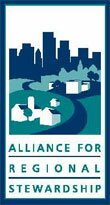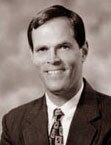Archives: David Thornburgh's Commentary
 |
|
|
| |
David Thornburgh, former CEO and President of ARS, shared his commentary on regional issues weekly on KYW 1060, Greater Philadelphia's all-news radio station.
|
 |
An intriguing new report just came out from the Pew Trusts sorting through Philadelphia’s prospects and challenges circa 2007. It’s an update of a similar report Pew commissioned in 1999—not coincidentally, both done on the doorstep of a Mayor’s race in the City of Brotherly Love.
Among all kinds of intriguing insight and analysis, the report reaffirms a central fact of economic life: cities are central parts of regional economies. In fact, the report goes on to say, “Cities can do poorly even when their regions are doing better, but it is very difficult for cities to do well when their regions are in trouble”. Examples? Pittsburgh and what’s left of the manufacturing Rust Belt (struggling region, struggling city). Baltimore-Washington and Atlanta (booming region, rebounding city).
So, while in some quarters it’s always fashionable to write off regional collaboration as an insidious communist plot, the report says “…the need to work regionally is if anything even more pressing, both in Philadelphia and elsewhere”.
February 12: Audio version
Does size matter? We’re talking population, of course, mind you. When the latest data comes trickling down about this region, or that region, the front page articles are reserved for the population stories – like when the news Census estimates came out pointing out that Phoenix is only 2,500 people behind Philadelphia in the population Olympics. Phoenix rises and Philadelphia falls, right – end of story, huh?
Don’t be duped. Sure, population matters, but at the very least get behind the numbers. Population change, you’ll recall, is the result of people being born, people dying, people moving out, and people moving in. Different cities and regions have different patterns, and that’s what’s important. One thing to remember – often the rate at which people move out is pretty similar. What makes one place grow and another place shrink often revolves around the rate at which people move in.
So, if it’s growth you want, there’s your ticket. Get more people to move in, either from other parts of the country or from other countries. Don’t worry so much about people moving out.
January 26: Audio version
What’s the one issue that really ties a region together? My vote – transit. And why? Take the quiz: Companies need to get their people to work efficiently and predictably from around the region. Answer: transit. Citizens want less pollution and traffic congestion, more parks and open space, and quaint small towns. Answer: transit. Everybody wants to get to a job, no matter where they live. Answer: transit.
It’s not surprising, then, that region after region around the US – from Salt Lake City to Denver, South Florida to Phoenix – has been voting to support transit service, whether new lines, renewal of existing systems, or service enhancements like efficient fare systems and passenger information systems.
In Pennsylvania, lawmakers and voters have that same opportunity this spring, based on the recent recommendations of Governor Rendell’s Transportation Funding and Reform Commission. If Pennsylvania follows the lead of other regions and supports the future of transit, it’ll be a good day for the economic future of the Commonwealth’s regions.
|


